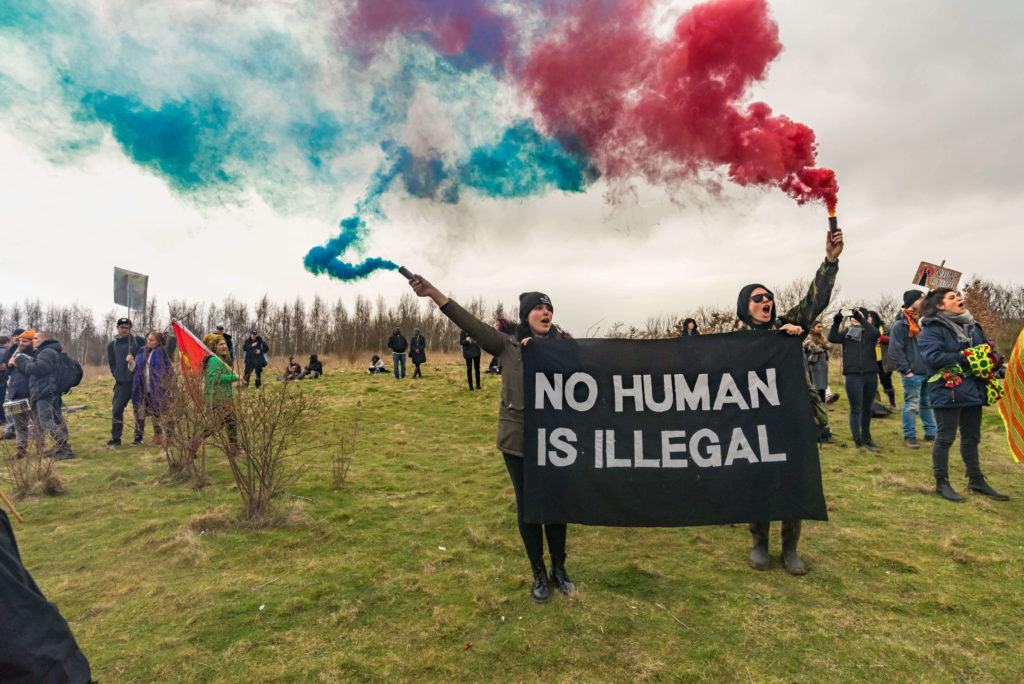For International Migrants’ Day, the Green Party’s Migration and Refugee Spokesperson Benali Hamdache sets out the case for an amnesty for undocumented migrants in the UK.
Earlier this month, Ireland announced an amnesty for all undocumented migrants in the country. Up to 17,000 people, including 3,000 children, who have made their homes in Ireland yet have been under threat of deportation, will be able to apply for the right to reside there permanently. They will gain equal rights, something that Irish Green Party justice spokesperson Patrick Costello has said will help “ensure nobody is left outside the protection of the law.”
Contrast the approach taken to refugees on this side of the Irish Sea. Earlier this week, a shocking report revealed how hundreds of asylum seekers being kept in a holding centre in Kent are being left with nowhere to sleep, with untreated burns, and without rape support. This is the latest of a catalogue of reports revealing how migrants, including children, are being routinely having their human rights to safety and adequate shelter denied.
The Hostile Environment that faces people on their arrival in the UK extends to those who have been here for years trying to make a living. Undocumented migrants – the majority of whom arrived through legal routes but have fallen out of legal status – find it hard to access healthcare, in the middle of a pandemic. They are legally barred from working, meaning that many are forced into dangerous and exploitative work to try to survive. Domestic abuse rates among undocumented women are three times higher than the rest of the UK population, and twice as high for men, and they are unable to escape because reporting to any authorities, even the NHS, could see them deported.


Instead of addressing these concerns humanely – or even effectively, given that no policy, however draconian, will ever completely shut all borders and remove all undocumented migrants – the Conservative government has focused on pushing through the Nationality and Borders Bill with a frenzy of anti-immigrant rhetoric, including direct untruths from the Home Secretary.
The Nationality and Borders Bill – also known as the Anti-Refugee Bill – is a vicious piece of legislation that would take us in the opposite direction to Ireland. It threatens to strip British nationals of their citizenship if they hold another passport. It would give border guards legal immunity when pushing back boats carrying refugees – a free licence to cause more deaths like the tragedy of 27 people drowning in the Channel a few weeks ago. It would mean people who are applying for asylum in the UK could be held in places where they would be at risk, such as Rwanda.
Where Ireland is demonstrating compassion, recognising the humanity of people who have fled horrific situations, and valuing the contribution they can make to Irish society, the UK government is using these desperate people for short-sighted dog-whistle political advantage.
The amnesty for undocumented migrants was a key policy of the Irish Green Party in joining a coalition government. Here, the Green Party of England and Wales is campaigning for the same policy. This isn’t a radical call – the current Prime Minister said he was open to the idea when he was Mayor of London.
So what would an amnesty mean for migrants in the UK? It is hard to gain reliable figures for the number of undocumented migrants in the UK. But an amnesty would mean that people who live and work here are able to do so safely, with access to healthcare, protection against exploitation, and a right to remain with their families. It would recognise the role that migrants can play in our society, enhancing our culture and working in key sectors such as health and care.
This would just be a start – as the Joint Council for the Welfare of Immigrants recommends, routes to regularisation must be made safer and easier long-term. But we cannot continue to allow people to live in the shadows – it is time to welcome them and the contribution they can make to our society.












